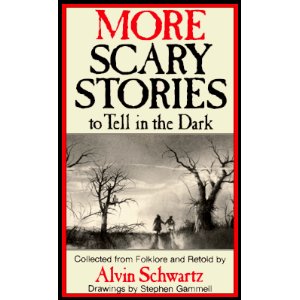There is shadow under this red rock
I will show you fear in a handful of dust.”
T.S. Eliot, The Waste Lands
“Let’s talk, you and I. Let’s talk about fear.
The house is empty as I write this; a cold February rain is falling outside. It’s night. Sometimes when the wind blows the way it’s blowing now we lose the power, we lose the power. But for now it’s on, and so let’s talk very honestly about fear. Let’s talk very rationally about moving to the rim of madness…and perhaps over the edge.”
Stephen King, Forward in Night Shift
For the Halloween blogfest, I thought I would talk to you about fear and wonder. I think there is an essence of emotion behind every genre. I think that is actually why books are grouped by genre…not just to make sure the Science Fiction and Fantasy cooties don’t get on the other books, but so readers can find a book based on what emotion they want to experience.
Even though I don’t write horror fiction, I still try to take a page from Stephan King’s book and capture that essence of emotion. This core emotion is different depending on your genre. For horror writers, it’s fear. When you read a book by Stephen King, he’s talking to you about fear. He’s showing you where it lives, and where to touch the body lying on the table. He’s showing you death.
When you read a book in fantasy, it’s about wonder. It might be cold wonder, or horrific wonder, or resigned wonder depending on the flavor of the book, but fantasy boils down to wonder. Look at THIS, Tolkien or Jim Butcher or George R. R. Martin tells you. See what new and different things we have here…let’s explore shall we? A fantasy author shows you where wonder lives. Depending on the subgenre, wonder might live in the sewer and quickly turn to dread, but fantasy is about trying to know the unknown. My favorite part about fantasy is when you get to the end you discover that are actually aspects you DO know about this unknown thing, and thus you have cyclically ended up in your own backyard.
My suggestion for you this Halloween is to try to identify what core emotion you are writing about, whether it’s the fear of horror or the wonder of fantasy, or the mystery of mystery. There must be some reason you’re writing. There must be some driving passion that is pushing you forward through the long nights and heartbreaking days. Writing is an obsession that most of us will pursue until the day we die, without any guarantee that we will ever get outside validation.
I personally believe that writers are simply born with the desire; that it’s part of who we are. Every day I spent on the Internet and read countless aspiring author blogs, marveling at how many of us there are, is proof enough for me. We’re writing because it’s what we do. It’s who we are. But I feel like you will be much happier and content with yourself as a writer if you have some thoughts and conversations with yourself about why you write what you write.
Be honest, because there’s no shame in writing any genre. When you’re figuring out why you’re drawn to steamy romance novels, shame should not enter into the equation. Plenty of strangers will try to make you feel weird for writing what you’re writing, whether it’s Young Adult, literary fiction, or fantasy, so make sure the Shame Train stops with them.
It is my belief that when you have a better understanding of your subconscious, you will have a better compass to guide you. Just like having a clear idea of where you stand on Right and Wrong and whether or not there’s a God gives you an easier time navigating the curve balls life throws you, I think having a clear idea of the figments of emotions you are pursuing gives you an easier time holding on. To your book, to your conviction that you will be published, to your certainty that you won’t run out of idea, that upon publication you won’t turn into the laughingstock of the entire world. If you have the idea that you’re writing to find fear, or because you’re in awe of the sky, or because injustice is burning within you, it will act as your compass through the book and your career.
Each book is written with different emotions in mind, but I think there’s an even more elusive concrete reason behind it all. The man behind the curtain, if you will. I think that there’s a reason behind my urge to write, a reason I am not entirely aware of. It’s always been there, so I can’t blame it on external events, even though my life has help shape me into who I am. I think at the core of every writer exists a reason behind your drive. We’re all driving towards something with no visible gain, no sure-fire benefit. We all must share some need in common that writing fulfills.
For me, the urge to write has something to do with the combination of the catharsis I feel when I express words on paper, and my incessant curiosity. I need to know why. It was my favorite question as a kid, and sometimes I feel like books are an elaborate form of asking: If this happened, under these circumstances, to this set of people, what would happen, and why?
Or maybe I am just chasing butterflies, and trying to know the unknowable. Ahh, the curse of a fantasy writer.











